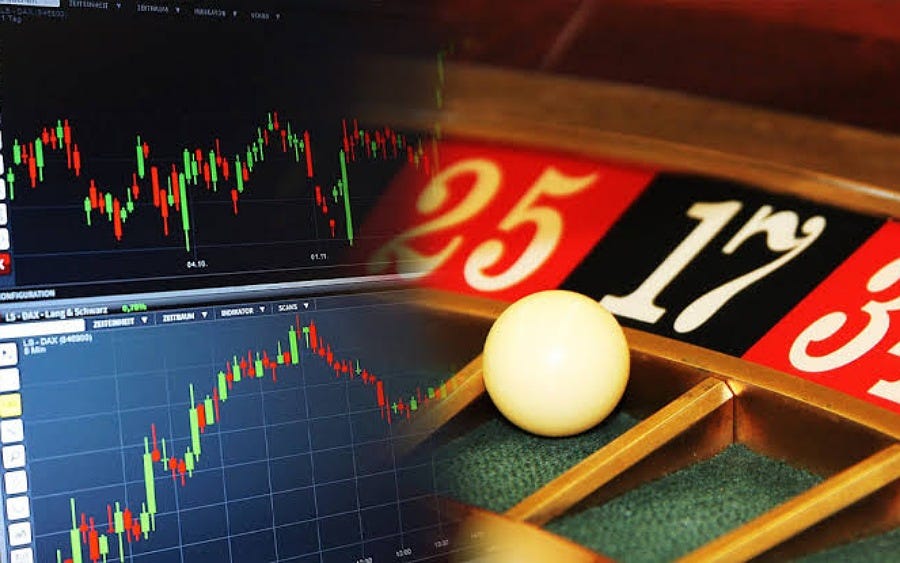Do you wonder if trading is just gambling? Let’s break it down.
You’ll explore the fine line between risk and probability malaysia online casino free credit, the role of skill and strategy, the impact of market dynamics, the need for emotional discipline, and the importance of a long-term perspective.
By the end, you’ll have a clearer view of whether trading is a game of chance or a skillful endeavor.
:max_bytes(150000):strip_icc()/thinkstockphotos-200325572-001-5bfc351446e0fb0083c239b7.jpg)
Risk Vs. Probability
When trading, you must understand the distinction between risk and probability to make informed decisions. Risk is the potential for loss or harm, while probability is the likelihood of a specific outcome occurring.
By comprehending these concepts, you empower yourself to navigate the financial markets with confidence. Embrace risk as a natural part of trading, but also analyze the probabilities involved in each decision. This balance allows you to take calculated risks rather than blind gambles.
Skill and Strategy
Developing a strong skillset and implementing effective strategies is crucial in distinguishing trading from gambling. Trading requires knowledge, analysis, and decision-making based on market trends and indicators. Unlike gambling, where outcomes are often left to chance, trading involves actively managing risks and making informed choices.
By honing your skills through education and practice, you can increase your chances of success in trading. Strategies such as risk management, diversification, and setting clear goals are key components in achieving profitable trades. Embrace continuous learning and adaptability to navigate the dynamic nature of financial markets.
Market Dynamics
To understand market dynamics in trading, you must continuously analyze and adapt to the ever-changing conditions of the financial landscape. Keep a watchful eye on market trends, news, and economic indicators that influence the prices of assets.
Embrace flexibility in your trading strategies to align with the shifts in market sentiment. Recognize that market dynamics can be volatile, requiring a nimble approach to capitalize on opportunities and manage risks effectively.
Stay informed about global events, as they can have ripple effects on different asset classes. By staying attuned to market dynamics, you empower yourself to make informed decisions and navigate the complexities of the trading world with confidence and agility.

Emotional Discipline
Maintain control over your emotions to navigate the highs and lows of trading with resilience and composure. Emotions can cloud judgment and lead to impulsive decisions that are detrimental to your trading success.
When you feel anxious or euphoric, take a step back, breathe, and reassess the situation with a clear mind. Develop a trading plan and stick to it, regardless of temporary emotional fluctuations.
Remember, trading requires a disciplined mindset and the ability to detach emotions from decision-making. Stay focused on your long-term goals and avoid being swayed by momentary market movements.
Long-Term Perspective
To trade successfully over the long term, consistently review and adjust your strategies based on market conditions and performance. Keep a keen eye on trends, economic indicators, and news that could impact your investments.
Embrace adaptability as a key trait in your trading journey. Remember, the market is ever-changing, and what works today may not work tomorrow. Be open to learning from both successes and failures, using them to refine your approach.
Cultivate patience and endurance, understanding that long-term gains often come from staying the course during fluctuations. By maintaining a long-term perspective, you can navigate the uncertainties of trading with confidence and resilience.
Trust your abilities, stay informed, and keep evolving to achieve your financial goals.
Conclusion
In conclusion, trading can be seen as a form of gambling due to the inherent risks involved.
However, with the right skill, strategy, and emotional discipline, traders can increase their probability of success and navigate market dynamics effectively.
It’s important to approach trading with a long-term perspective and understand that it isn’t just about luck, but also about making informed decisions based on analysis and research.
